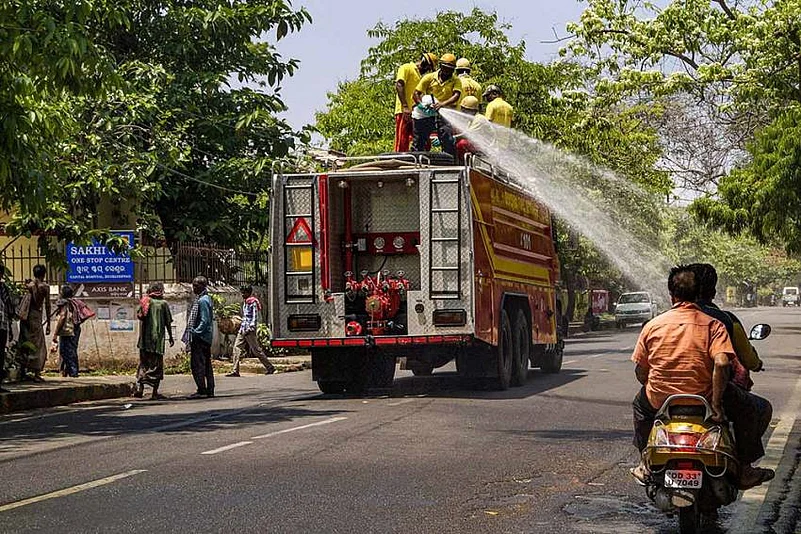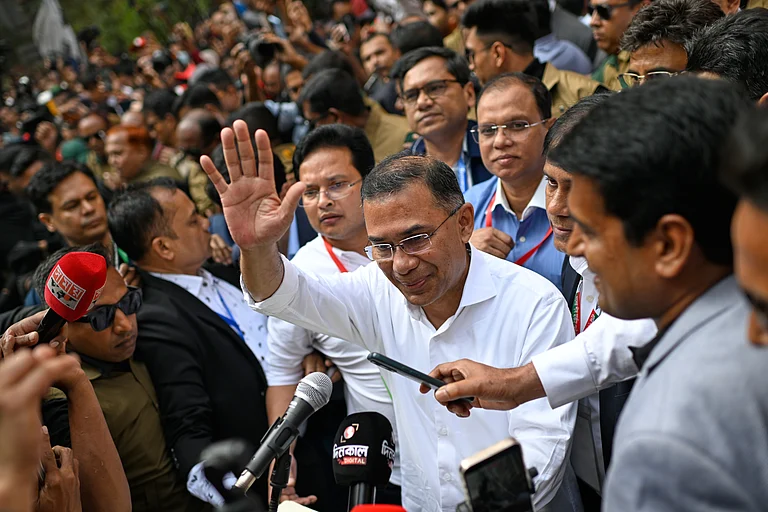From 0 to 210 in 11 days flat! That’s how the Corona graph in Odisha’s Ganjam district has zoomed between May 2 and May 13. During the same period, the total number of Corona positive cases in the state has leapfrogged from 112 to 611. No less than 101 fresh cases were added to the list on Wednesday alone, the first time new cases have breached the 100 mark in a day so far. Fifty three of them were accounted for by Ganjam while 33 were reported from Balasore, the other hotspot in the state.
There are no prizes for guessing how the number of positive cases, which had remained remarkably under control till the beginning of the month, went through the roof in the days since then. The overwhelming majority of cases were found among the thousands of migrant workers stranded in major cities in other states due to the nationwide lockdown since March 25, who started arriving in hordes since the beginning of the month. The 210 cases detected in Ganjam, for example, are almost entirely the contribution of returnees from the cotton and diamond city of Surat , which has a population of over 7 lakh migrant workers from Odisha, the vast majority of them from this coastal district in south Odisha.
While the huge spurt in the number of cases has predictably led to an outcry against the government decision to bring back the migrant workers, Ganjam collector Vijay Amrit Kulange insists there is nothing to fear about the rising numbers. “There is no reason to panic as all those coming in are thoroughly screened on arrival and put on quarantine. We also have a robust mechanism in place to trace out anyone who sneaks in without our knowledge. There is no threat of community transmission in Ganjam now nor is it likely in the future,” he said. The state government’s chief spokesperson for Corona Subroto Bagchi has said much the same in his daily briefing.
Notwithstanding the government’s emphatic assurance, however, instances of people dodging the government protocol and coming in surreptitiously are being reported from almost all hotspots in the state. In Bhograi area in Balasore, for example, a youth who married his lady love in Contai on April 17, returned to his village with her and then went on with life as if nothing had happened is believed to have played the ‘super spreader’ leading to over 30 positive cases being reported in just two days.
The state government is expecting up to 7 lakh migrant workers stranded in Gujarat, Maharashtra, Tamil Nadu, Karnataka, Telangana and Delhi to arrive in the state in the next few days. Given the fact that only about 70, 000 of them have reached so far, it is obvious that the number of cases is set to rise exponentially in the days ahead. But the rise in numbers in itself, as the government has been repeatedly insisting, is not a huge concern because they are being brought back and quarantined in a controlled atmosphere. The real danger, those in the know say, comes from those like the Bhograi youth who are returning on their own.
Umi Daniel, South Asia Director of Aide te Action, who has worked extensively on migration over the last two decades, feels the real danger would start once those employed in the brick kilns of Andhra Pradesh, Telangana and Tamil Nadu start arriving in droves. “What we have seen so far is that those who are coming back are mostly men. But the brick kiln workers would be accompanied by women and children. And that is where I see the real danger,” he told Outlook. Daniel feels the number of migrants who will return would be much more than the government estimate of 7 lakhs and could touch one million. Umi Daniel, however, believes growing awareness in the community – and not government surveillance - could save the day for Odisha in the end.
The other danger comes from gross violation of the restrictions in place by the inmates of quarantine centres. There are reports of them slipping out after dinner and spending the night with their families before returning to the centre in the morning. Local media is replete with reports of isolation protocols being violated with impunity. It is beyond the sarpanches, who have been tasked with keeping tabs on such violation, to maintain strict vigil round the clock.


















.jpg?w=200&auto=format%2Ccompress&fit=max)







